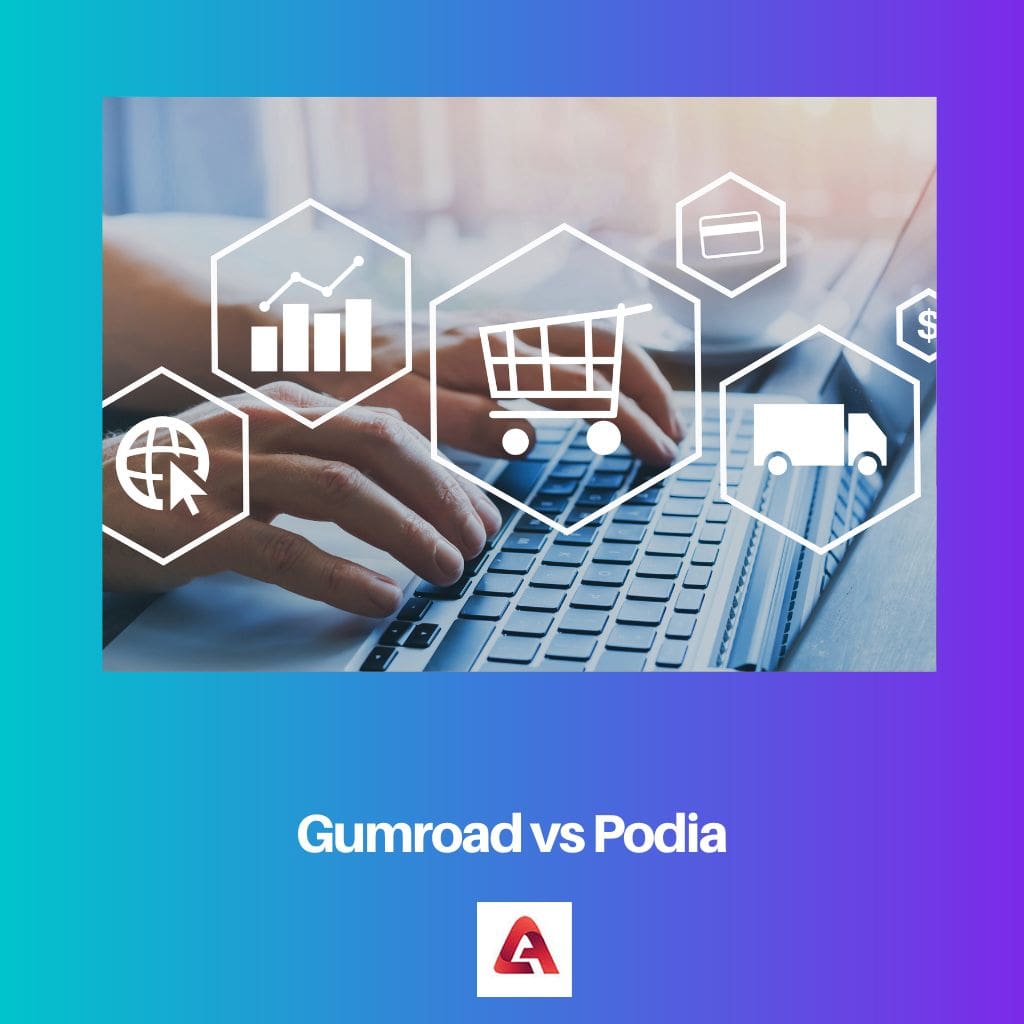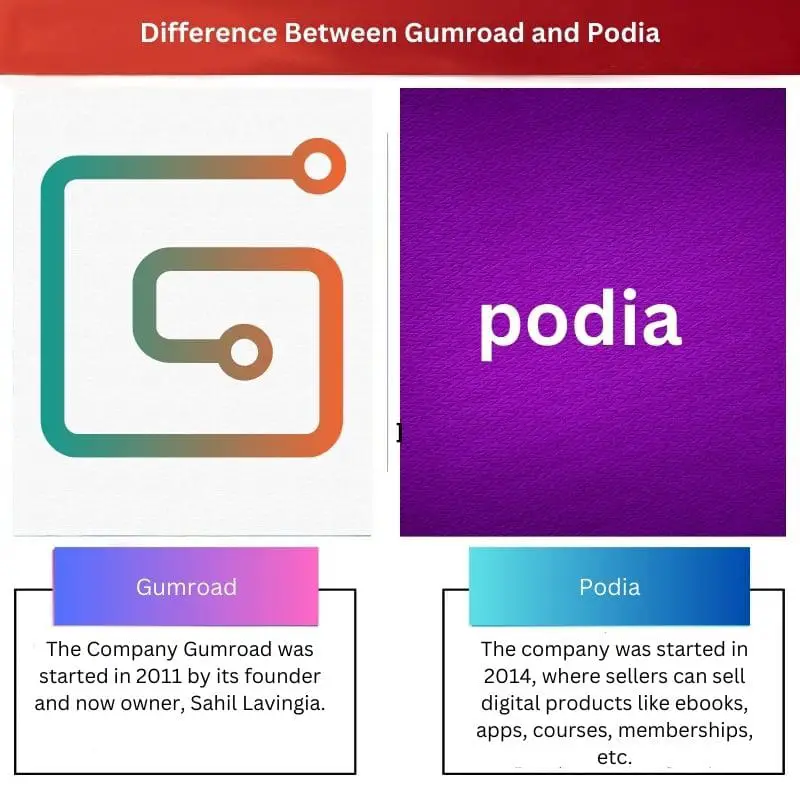With just one click now, people of the world can go through a range of products, whether it be any particular course of any particular subject or service, ebooks, games, etc. It is up to the creator of the product if they want to sell the product at a rate or for free to the customers.
Both Gumroad and Podia act as alternatives to each other. But a seller should look at each with thorough research before start selling their products or services on either of the sites.
Key Takeaways
- Gumroad is an e-commerce platform that allows creators to sell digital products, while Podia is an all-in-one platform for selling online courses, memberships, and digital downloads.
- Gumroad has a simple and easy-to-use interface, making it a great option for those just starting. At the same time, Podia offers more advanced features such as membership subscriptions and affiliate marketing.
- Gumroad charges a 5% fee on each sale plus a payment processing fee, while Podia charges a flat monthly fee with no additional transaction fees.
Gumroad vs Podia
The difference between Gumroad and Podia is that Gumroad has a limited number of features on the website and is more basic than Podia. On the other hand, Gumroad not only has better landing pages but other features like bundles, and upsells as well.

The seller has to give out a certain percentage of commission to the company from their sale unless the product that they are selling is free for customers.
Podia is an online network where one can start a business or emphasize it, they have two packages, and unlike giving out commission, the seller has to choose one of the two packages and then pay the amount accordingly on a monthly basis.
Comparison Table
| Parameters of Comparison | Gumroad | Podia |
|---|---|---|
| Year of discovery | 2011 | 2014 |
| Discoverd by | Sahil Lavingia | Spencer Fry |
| Commission by company | Takes commission on every purchase. | No commission. |
| Support | Do not provide 24/7 customer service | Podia provides 24/7 live support to its users. |
| Free version | Gumroad has a free version available. | Podia gives out a two-week free trial of the site but after that time period, one has to choose between their two packages that the company offers. |
What is Gumroad?
The Company Gumroad was started in 2011 by its founder and now owner, Sahil Lavingia. The idea was formed in his mind when he wanted to sell a photorealistic icon he had made but found trouble when he couldn’t easily find a place to sell it.
Various people workings in various fields use, whether they be an artist or designers, anyone. It acts as a brochure for someone’s work as they can display whatever products they want to put on sale.
Now, Gumroad is not only limited to electronic items only. People can also sell rentals, physical products, pre-orders, and membership products.
What is Podia?
The company was started in 2014, where sellers can sell digital products like ebooks, apps, courses, memberships, etc.
Podia is known to be an all-in-one platform where all the tools are already there, set to be used by the seller. A creator is given three main components that they can use to make their course: Content, Settings, and Pricing.
There are two types of “packages” on the platform: First, a “Mover package” and then the second “Shaker package”. The Mover package is cheaper than the Shaker package but provides fewer services to the creator.
Main Differences Between Gumroad and Podia
- Gumroad does not currently have custom storefronts available on its website, making it pretty basic. While Podia has this feature along with other things like upsells and bundles as well.
- Gumroad provides only a single type of package for the sellers, that is, the creator one. Podia, in comparison, provides the option to choose from two packages, a Mover package and a Shaker package.





